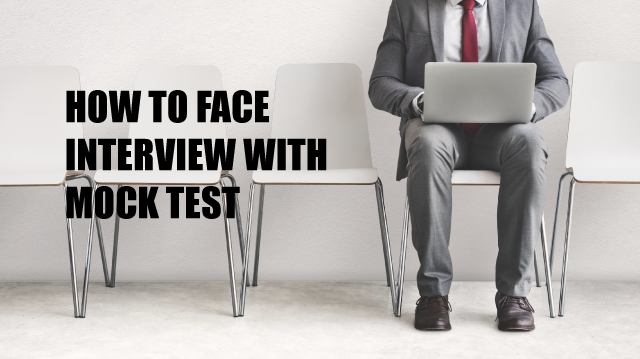


The 'How to Face Interview with Mock Interview' course is designed to equip participants with the skills and confidence needed to excel in job interviews. It covers effective interview preparation, presentation, and professionalism, as well as mock interview practice to simulate real-world scenarios. Participants learn to handle different interview formats, address challenges, and follow up post-interview professionally. The course aims to provide practical guidance and feedback to help individuals improve their interview performance and increase their chances of securing employment.
Overview: The How to Face Interviews with Mock Interviews training program is designed to prepare participants for job interviews by providing them with practical knowledge, strategies, and hands-on experience through mock interview sessions. This program aims to boost participants' confidence, enhance their interview skills, and equip them with the tools to effectively navigate various interview scenarios.
Objective:
• Build Confidence: Boost participants' confidence in facing job interviews through practical experience and feedback.
• Develop Interview Skills: Enhance participants' interview skills, including communication, body language, and problem-solving.
• Provide Realistic Experience: Offer participants the opportunity to experience and learn from mock interviews simulating real-world scenarios.
• Offer Constructive Feedback: Provide personalized feedback and coaching to help participants identify areas for improvement and refine their interview techniques.
• Improve Interview Performance: Equip participants with the knowledge and strategies to perform well in different types of interviews (e.g., behavioral, technical).
Training Content:
1. Introduction to Job Interviews
• Overview of the interview process
• Different types of interviews (e.g., behavioral, technical, panel)
• Importance of preparation and practice
2. Understanding Employer Expectations
• Researching the company and position
• Identifying key job requirements and employer expectations
• Tailoring responses to align with employer needs
3. Preparing for Interviews
• Resume review and preparation
• Anticipating common interview questions
• Developing compelling responses using the STAR method (Situation, Task, Action, Result)
4. Effective Communication Skills
• Verbal communication techniques: clarity, articulation, and tone
• Active listening and responding to questions effectively
• Using positive language and confidence-building phrases
5. Body Language and Non-Verbal Communication
• Understanding the impact of body language in interviews
• Projecting confidence through posture, gestures, and eye contact
• Maintaining professional demeanor throughout the interview
6. Handling Different Interview Scenarios
• Behavioral interviews: responding to competency-based questions
• Technical interviews: demonstrating relevant skills and knowledge
• Panel interviews: engaging with multiple interviewers and managing dynamics
7. Mock Interview Sessions
• Conducting mock interviews simulating real-world scenarios
• Participating in role-playing exercises as interviewers and interviewees
• Receiving feedback and constructive criticism from trainers and peers
8. Feedback and Coaching
• Providing personalized feedback on interview performance
• Identifying strengths and areas for improvement
• Offering strategies and tips for enhancing interview skills
9. Dealing with Common Interview Challenges
• Addressing gaps in employment history or lack of experience
• Handling difficult questions or unexpected situations
• Overcoming nervousness and managing interview anxiety
10. Follow-Up and Post-Interview Etiquette
• Sending thank-you notes or emails after interviews
• Following up on interview outcomes and next steps
• Evaluating interview performance and lessons learned
11. Continuous Improvement and Practice
• Importance of ongoing practice and refinement of interview skills
• Seeking additional resources and support for further improvement
• Committing to continuous learning and development in interview techniques
12. Individual Action Plans
• Developing personalized action plans for continued improvement in interview skills
• Setting goals and timelines for practice and preparation
• Tracking progress and revising strategies as needed
Training Methods:
• Lectures and Presentations: Deliver foundational knowledge and key concepts.
• Interactive Workshops: Engage participants in practical exercises and mock interview sessions.
• Role-Playing: Simulate interview scenarios to practice responses and techniques.
• Feedback Sessions: Offer personalized feedback and coaching on interview performance.
• Group Discussions: Facilitate sharing of experiences and peer learning.
• Individual Coaching: Provide one-on-one coaching and support as needed.
• Self-Assessments: Tools to evaluate interview skills and track progress over time.
Week 1: Understanding the Interview Process
Week 2: Presentation and Professionalism
Week 3: Handling Interview Challenges
Week 4: Post-Interview Etiquette and Follow-Up